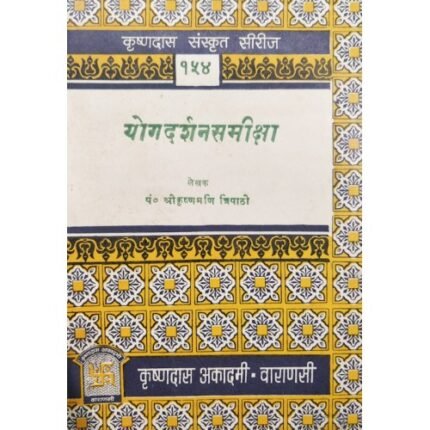
Sodhala Nighantu of Sodhal
₹1,075.00 Original price was: ₹1,075.00.₹860.00Current price is: ₹860.00.pc

Sushruta Samhita 3 vols.
₹3,500.00 Original price was: ₹3,500.00.₹2,800.00Current price is: ₹2,800.00.pc
Surgical Ethics in Ayurveda
₹110.00 Original price was: ₹110.00.₹88.00Current price is: ₹88.00.pc
5 in stock (can be backordered)
SKU:
Surgical Ethics in Ayurveda
Categories: Ayurveda, B.A.M.S Book
Tags: chaukhamba series, Dr. G.D. Singhal & Pt. Damodar Sharma Gaur
Description
“Surgical Ethics in Ayurveda” refers to the ethical principles and guidelines that govern the practice of surgery within the framework of Ayurvedic medicine. Here are some key aspects typically addressed:
- Patient-Centered Care: Ayurvedic surgical ethics emphasize the importance of patient welfare and well-being as the primary consideration in surgical decision-making and treatment planning.
- Informed Consent: Like modern medical ethics, Ayurvedic surgical ethics stress the necessity of obtaining informed consent from patients or their guardians before performing any surgical procedure. This involves explaining the nature of the procedure, potential risks and benefits, alternatives, and expected outcomes.
- Non-Maleficence: The principle of “do no harm” (primum non nocere) is central to Ayurvedic surgical ethics. Surgeons are obligated to minimize harm to the patient during and after surgery, employing techniques and practices that prioritize safety and minimize risks.
Additional information
| Weight | 0.200 kg |
|---|---|
| Dimensions | 15 × 10 × 4 cm |
| Brand |
Chaukhamba sanskrit Series |
| Language |
English |
| Publisher |
Chaukhamba Sanskrit Series |
| Author |
Dr. G.D. Singhal & Pt. Damodar Sharma Gaur |
Reviews (0)
Rated 0 out of 5
0 reviews
Rated 5 out of 5
0
Rated 4 out of 5
0
Rated 3 out of 5
0
Rated 2 out of 5
0
Rated 1 out of 5
0
Be the first to review “Surgical Ethics in Ayurveda” Cancel reply
Shipping & Delivery


Shipping & Delivery
For fast and confirmed delivery send your complete postal address because we use India Post for delivery. It takes may be one week to 12 days and if the Customer wants through courier it charges extra according weight and pincode and you should contact us on our given number.
Shipping
- For orders up to 1 kg: ₹99
- For every additional 500 grams (above 1 kg): ₹30
- Shipping is handled by India Post.
Related products
A Compendium of the Ayurvedic Pharmacopoeia
₹695.00pc
Rated 0 out of 5
A Short Ayurvedic Text Book of Common Medical Emergency
Rated 0 out of 5





















 Vastu shastra
Vastu shastra Geeta press
Geeta press
Reviews
Clear filtersThere are no reviews yet.